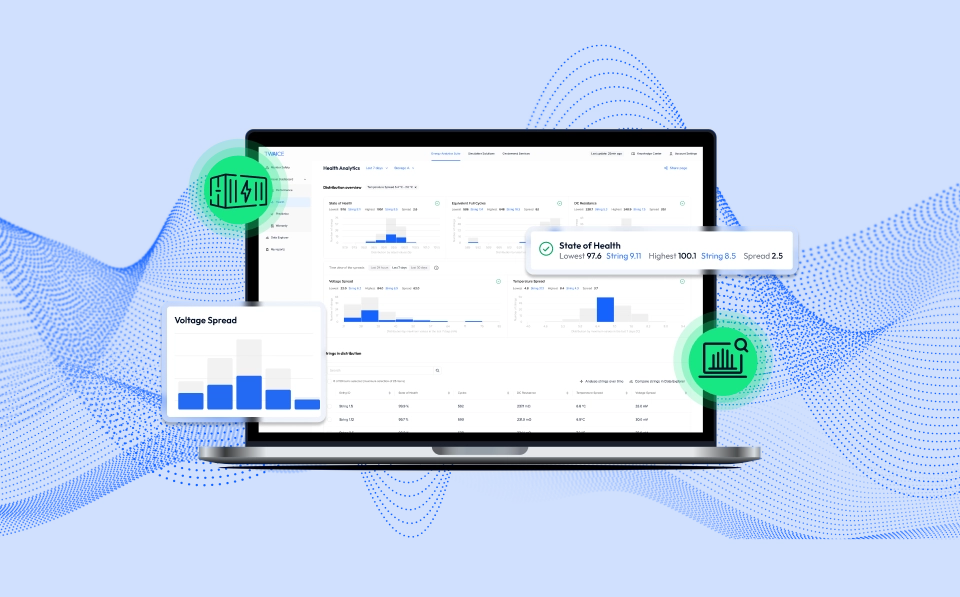A joint study by EPRI, PNNL and TWAICE analyzes aggregated failure data and reveals underlying causes for battery storage failures, offering invaluable insights and recommendations for future engineering and operation

Study on BESS failures: analysis of failure root cause
Download the report here
BESS failures: study by EPRI, PNNL, and TWAICE identifies opportunities for battery analytics to prevent incidents
TWAICE, the leading provider of battery analytics software, Electric Power Research Institute (EPRI) and Pacific Northwest National Laboratory (PNNL) published today their joint study: the most recent, comprehensive publicly available analysis of the root causes of battery energy storage system (BESS) failure incidents. In aggregating why battery systems have failed in the past in an easily accessible format, the report will help guide efforts to mitigate storage incidents in the future and minimize BESS risk.
The report draws primarily from EPRI’s BESS Failure Incident Database which the authors updated and analyzed to categorize failure incidents by cause and failed element. Of the 81 events in the database, 26 had sufficient information to establish a root cause. TWAICE engineers worked with EPRI and PNNL to classify these failure incidents, applying their expertise in battery analysis to determine causes and categorize them.
Their findings ultimately showed that BESS failures can be linked to the design, manufacturing, integration, and operation phases of a project, and that while codes, standards, and manufacturing expertise serve as a mitigation in design and manufacturing, there is a gap in safety practices in the integration and operation phases of a project. Opposite to popular believe, the engineers determined only three failures could be traced to defects on the cell or module, underscoring the need for tools that enable improved commissioning and operational analysis of the entire system.
“Understanding the reasons behind battery storage failures is critical for preventing them, which is why we’re pleased to help create this new framework for classifying failure incidents,” says Ryan Franks of TWAICE. “The report emphasizes the importance of battery analytics, with most of the failures traced to the integration and operation stages. We believe this new resource will help guide further development of analytics software that can ensure BESS safety. We’re honored to support EPRI in the publication of this report and thankful for the collaboration of their engineers and those from PNNL.”
In underscoring the importance of battery analytics and its future development, the report lays the foundation for a more resilient and secure energy storage infrastructure. The analysis of failure incidents demonstrates that, while manufacturing defects do contribute to some failures, operators must pay equal attention to potential errors during the design, integration, and operation of BESS units. Analytics software is ideally suited to detect these incidents before they lead to a system failure, and the publication of this report should help guide the development of mitigation strategies –which include the deployment of battery analytics.
The full report can be downloaded at EPRI’s website.

See TWAICE Energy Storage Analytics in Action
Sign up for the next live group demo and learn how TWAICE can transform your BESS operations. In just 30 minutes, you’ll get a demo of key features and use cases, and engage with our product experts for a live Q&A.
Related Resources

Second Foundation Pioneers Data-Driven Operation with Three-Year Deal for BESS Analytics
.avif)
TWAICE and Modo Energy Debut Integration to Quantify the Financial Impact of BESS Performance Improvements in ERCOT Markets
%20(1)%20(1)%20(1).avif)








%201%20(5).avif)






.avif)


